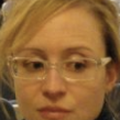Goal
Community Commons is a place to discuss topics and post documents and references relating broadly to medical humanities.
Members
-

Organizer/ Contact
-

Participant
-

Participant
-

Participant
-

Abigail Neely, PhD
Member
-

Member
-

Member
-

Member
-

Member
-

Mark Williams, PhD
Member
-

Neil Vickers, BA DEA MPhil DPhil
Member
- View all
Community Commons Project
Link added by Martina Zimmermann to Community Commons | 8 Sep 2017
The Poetics and Politics of Alzheimer's Disease Life-Writing (Palgrave, 2017)
This is the first book-length exploration of the thoughts and experiences expressed by dementia patients in book published narratives. It contrasts third-person caregiver and first-person patient accounts from different languages and a range of media, and specifically focuses on the poetical and political questions these narratives raise. Thanks to Wellcome Trust funding this book is open access and can be downloaded free from the publisher's page.
Document (pdf) uploaded by Sarah Greene to Community Commons | 6 Jun 2017
2017 Humanities in Medicine Symposium, Oct 27-29, Mayo Clinic - Deadline for submissions extended to FRIDAY, JULY 14, 2017
Interested presenters are encouraged to consider (but are not limited to) these concepts in their abstract proposal: CROSSING DISCIPLINES: STRATEGIES FOR HUMANIZING ONE ANOTHER Sponsored by the Dolores Jean Lavins Center for Humanities in Medicine In 2017, we choose to focus on how the health humanities can address differences among cultures and value systems in the healthcare workplace and beyond. We seek tools to address the concept of otherness and celebrate difference. We encourage proposals for presentations offering strategies for sustaining empathy in challenging situations—strategies that may be employed in healthcare practice, education and research. What notable examples exist in the health humanities that demonstrate cross-cultural engagement or alternative ways of thinking about difference, and model collaborative meaning-making? Who are the key practitioners who show us how to cross disciplines, blur the boundaries of otherness and listen authentically to other perspectives? How can the health humanities assist us in acknowledging bias and approaching patients and peers with openness and respect, while sustaining empathy? Please see the attached UPDATED complete call for abstracts for more information. Deadline: Abstract submissions must be emailed to [email protected] by 11:59 pm PDT on Friday July 14, 2017.
Document (pdf) uploaded by Sarah Greene to Community Commons | 6 Jun 2017
What Archie Cochrane Learnt from a Single Case, by Brian Hurwitz
Thoughts, feelings, and motives saturate clinical practice, but case reports tend to subordinate these aspects of the hurly burly of clinical experience to the goal of setting out findings, hypotheses, and knowledge claims; and the responsivity and impulsivity that Cochrane showed in 1943 are often edited out; and where they do creep in it is more likely to be wonder and surprise that become apparent in response to clinical appearances than the raw shame, desperation, and tenderness that we see here.
Document (pdf) uploaded by Sarah Greene to Community Commons | 6 Jun 2017
Parkinson’s Disease: What’s in the Name, by Brian Hurwitz
It is 200 years since James Parkinson (1755–1824) published his observations on slowly and differentially developing involuntary movements, which he contended constituted “the same species” of disease. In An Essay on the Shaking Palsy, first published in May, 1817, Parkinson argued that specific forms of shaking, weakness, and altered posture and gait, together amounted to a previously uncharacterised “highly afflictive” malady. He called it “the Shaking Palsy” and rendered it in the Essay once only—and pointedly in brackets—as “(Paralysis Agitans)”. Why an apothecary-surgeon who wrote all his works in English coined the term paralysis agitans for the malady he identified, and the terminological vicissitudes of the condition known now by the author’s eponym, are traced here. Brian Hurwitz and Brandon High are co-curating Parkinson of the Disease, a 200th anniversary exhibition of the life, work, and legacy of James Parkinson, drawing on his books, pamphlets, and manuscripts in King’s College London holdings and from those of other libraries. The exhibition will be held at The Weston Room, The Maughan Library, London, UK, from Oct 11, 2017 to Dec 16, 2017. For more information see http://www.kcl.ac.uk/library/archivespec/exhibitions/index.aspx#parkinson
Link added by Sarah Greene to Community Commons | 5 Jun 2017
Narrative constructs in modern clinical case reporting
Recommended by Brian Hurwitz. Abstract: Modern clinical case reporting takes the form of problem-solution narratives that redescribe symptoms in terms of disease categories. Authored almost always by those who have played a part in the medical assessment of the patient, reports historicise the salient details of an individual's illness as a complex effect of identifiable antecedent causes. Candidate hypotheses linking illness to pathological mechanisms are suggested by the patient’s experience, and by data that emerge from clinical examination and investigation. Observational and interpretive statements from these considerations are fitted into a temporally inflected account of the patient’s medical condition, configured from the vantage point of hindsight. Drawing on established forms of deferred telling, readers are invited to follow a story that drip-feeds a mixture of contingent and non-incidental information into the account, which engenders and frustrates curiosity, creates expectations, and challenges powers of reasoning and pattern recognition. Whereas case reporting once favoured memoir, the sentimental tale and eccentric biography as the means by which its historical narrative was cast, the preferred genres of contemporary case reporting include detective fiction, and puzzle and riddle narratives, formats that conceptualise the medical consultation in narrow problem-solution terms.
Reference added by Sarah Greene to Community Commons | 31 May 2017
Leslie M. Molecule kills elderly cells, reduces signs of aging in mice, in Science, 2017-3-23; American Association for the Advancement of Science (AAAS) DOI: 10.1126/science.aal0952
Comment by Veronica Sousa on Community Commons | 18 Apr 2017
Aging and Social Justice (ICLS, Columbia University)
Aging and Social Justice Director: Neni Panourgiá. Curator: Veronica Sousa (Princeton University, PhD 2022) How is aging to be understood as an issue of social justice? Though recent activism concerning issues of race and police brutality, Islamophobia, and feminism and gender have been at the forefront of deeply important work, issues of disability and aging often get left behind. Though disability gets drawn into the work of intersectional feminism, aging most go along with it. Aging must also be a cornerstone for social justice activism on its own terms. In our discussions of aging as an issue of social justice, we must discuss the following categories, among others: • Pathologies of aging • Mental health • Loneliness • Gendered, racial, and class issues • Disability • Intimate violence • Social Security and pensions • Family and caretakers • Life fulfillment, joy, and time In this module, we ask that you may consider aging as a social justice issue, and how these many intersectional issues fall under it as well. We hope to conceptualize aging in such a way as to open up a dialogue between scholars, students, medical professionals, artists, care-workers, and activists surrounding the idea of aging in the United States and around the world.
Comment by Grant Wythoff on Community Commons | 5 Apr 2017
Events update
Hi all. Just a quick note to say that some new events have been posted to the site's calendar, and if you have anything that you'd like me to add to this month's newsletter (CFPs, conferences, new publications, etc.), you can shoot me an email.
Comment by Grant Wythoff on Community Commons | 28 Mar 2017
CFP: Malawi Medical Humanities Network (due April 21)
Hosted by Chancellor College University of Malawi, 24 & 25 August 2017 Chancellor College is pleased to announce a 2-day international medical humanities conference to be held at the college’s Great Hall in Zomba, on 24th & 25th August 2017. In Europe and North America, medical humanities is understood as an emerging discipline which explores the social, historical and cultural dimensions of medicine. This conference offers a formal space to further our understanding of how illness, wellbeing, medicine & treatment intersect with the arts and humanities and to encourage discussions about what these concepts mean in an African context. It provides a highly interdisciplinary platform for a diversity of perspectives and inquiries into African concepts of health and wellbeing. Malawi’s own scholars–the late Professors Steve Chimombo and Chris Kamlongera–were pioneers in bringing the arts into conversation with health, community and development. We aspire to showcase the vibrant, contemporary medical humanities research within Malawi and throughout the African continent. We invite 20-minute papers on the following subjects including, but not limited to: The history of medicine and healthcare Medical ethics Medical anthropology Literature, poetry and medicine Visual and performed arts and the body Representations of illness and treatment Communication in health care Religious/spiritual perspectives on health Sociology of medicine The caregiver/patient relationship Healthcare architecture and design Disability studies Medicine and the law Globalisation and healthcare practices Please send an abstract (approximately 300 words) and short biographical note to the conference organisers by no later than Friday 21 April 2017. Proposals and all enquiries should be addressed to the Proposal Review Committee at [email protected]. Conference details and updates will be posted to https://malawimedhumsnetwork.wordpress.com. This conference is hosted by the Department of English, Faculty of Humanities at Chancellor College University of Malawi with funding from the Wellcome Trust and collaborators at University College London and the University of Edinburgh’s Centre of African Studies.
Document (pdf) uploaded by Esther L. Jones to Community Commons | 21 Jan 2017
Position Announcement: Medical Humanities & Race Teaching Fellow at Clark University, Worcester, MA
Greetings, Colleagues, Please share news of this short-term teaching position with your networks; also, feel free to nominate prospective candidates. Full announcement below, but also attached as a .pdf file: Teaching Fellowship in Health Humanities and Race CLARK UNIVERSITY, WORCESTER, MA. Health Humanities and Race. Renewable Postdoctoral Teaching Fellowship, beginning Fall 2017. The successful applicant will teach three courses the first year and four in the second year, beginning undergraduate to graduate level; give one public lecture based on research; and actively participate in the intellectual life of the Center for Gender, Race, and Area Studies. Candidates must have PhD in hand by start date, and be no more than three years past receipt of degree. This interdisciplinary teaching appointment seeks to bridge humanities-based inquiry with medicine and/or the health sciences. Through this teaching fellowship in Health Humanities and Race, Clark University wishes to add to its strengths in interdisciplinary scholarship and teaching. Candidates must have research programs that study health, including but not limited to: illness, disability, disease, the provision of health care, the health sciences, or medical technology from a humanities-based approach with particular focus on race and ethnicity. Humanities-based approaches appropriate for this position include but are not limited to: cultural, historical, or philosophical studies of medicine, nursing, or public health; intersections with gender and sexuality; literary or artistic analyses of health, illness, or disability; studies of discourse and narrative in medicine; and ethics and social justice in the health professions. The successful applicant will be housed in the Center for Gender, Race, and Area Studies, a federation of interdisciplinary majors and concentrations including Africana Studies, Asian Studies, Comparative Race and Ethnic Studies, Holocaust and Genocide Studies, Latin American and Latino Studies, Peace Studies, and Women’s and Gender Studies. This interdisciplinary unit will facilitate collaboration with relevant departments, centers, and schools within the University, and provide a scholarly community and network of support for the successful candidate. The successful candidate may also participate in the Master of Health Science in Community and Global Health, offered through Clark’s International Development, Community and Environment department. Review of applications begins February 15, 2017; finalists will be invited for campus visits in March 2017. Applications should include a cover letter that addresses the position description and describes teaching experience, c.v., and three confidential letters of reference. Referees should send their letters by email attachment, and should write the name of the applicant in the subject line of the email. Nominations are invited. Applications, letters of reference, and nominations should be emailed to [email protected]. Clark University embraces equal opportunity as a core value: we believe that cultivating an environment that embraces and promotes diversity is fundamental to the success of our students, our employees and our community. This commitment applies to every aspect of education, services, and employment policies and practices at Clark. Individuals interested in advancing the University’s strategic diversity and inclusion goals are strongly encouraged to apply. Clark University’s commitment to diversity informs our efforts in recruitment, hiring and retention.
